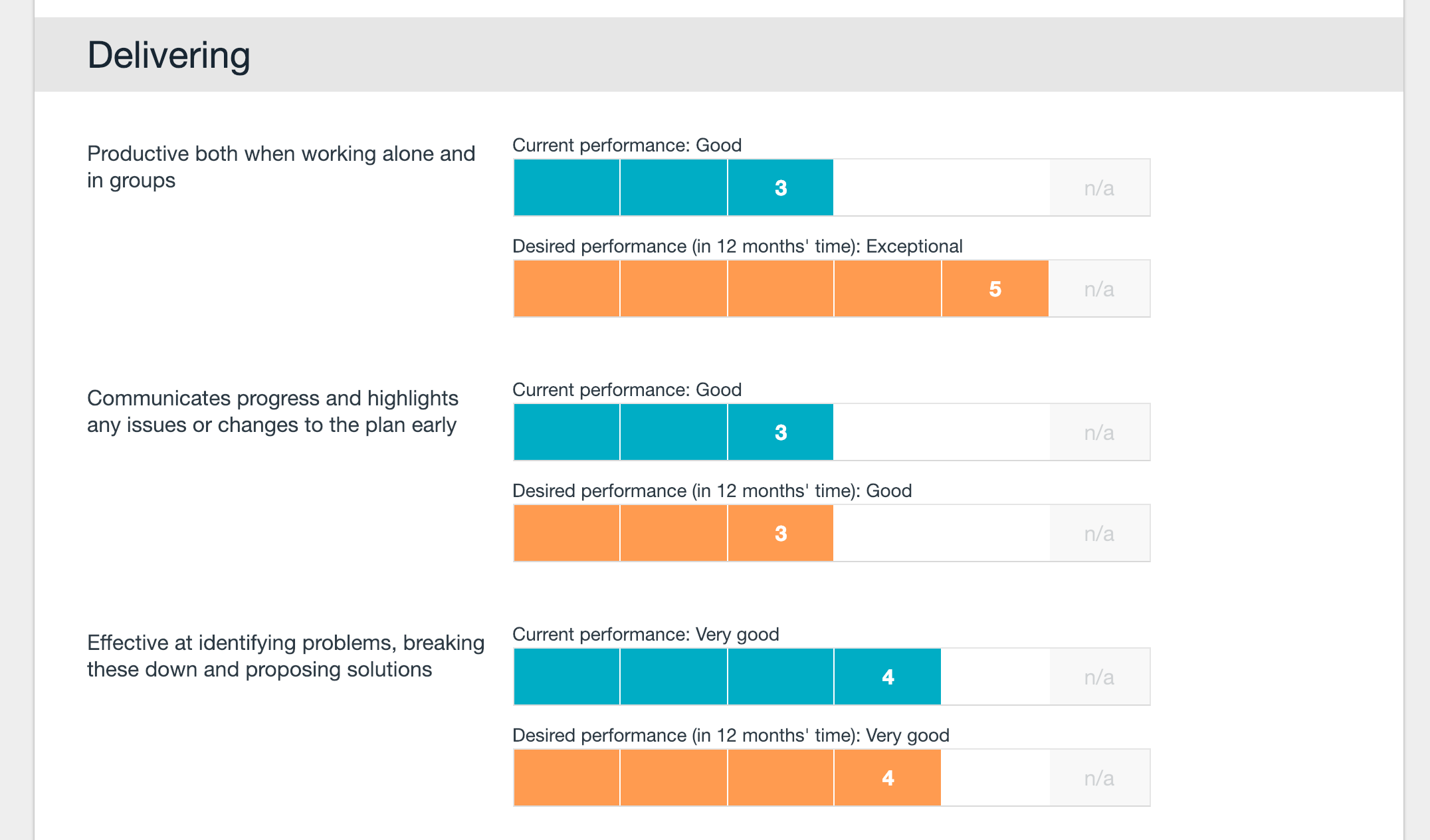Read more about our advanced option for using a dual rating scale in your project
At Spidergap, our goal is to make 360° Feedback as useful as possible for the person receiving feedback.
In some cases, the feedback can be more useful if you ask for feedback on both their current performance and their desired performance.
In this help article, we'll answer these questions:
-
How does it work to collect feedback on both current and desired performance?
-
When does it work best to ask for feedback on both current and desired performance?
-
When does it work best to just ask for feedback on current performance?
How does it work to collect feedback on both current and desired performance?
You can set up your feedback questionnaire to ask for feedback on both the current and desired performance of the person being assessed.
Here's how the questionnaire will look:

In the above questionnaire, you can see that the "desired performance" isn't always 5 out of 5.
This has a big impact on the message given to the person receiving the feedback. Instead of being told "communicating progress is a weakness", they will instead be told "communicating progress is not an area that needs improvement".
Wow!
Being given this information makes it much easier to prioritize areas to improve. You can see how clear this is in our sample reports:
Download sample report (where current and desired performance have been compared)
When does it work best to ask for feedback on both current and desired performance?
We recommend asking for feedback on both current and desired performance if the behaviors being rated are not always considered equally important.
For example, if you have a feedback assessment that focuses on generic soft-skills, you may find:
-
Outstanding communication skills are considered essential for your sales reps, but less so for your software developers
-
Analytical skills are considered really important for your developers, but less so for the sales reps.
In this scenario, getting feedback on the desired performance will make it much easier to see which areas need improvement.
When does it work best to just ask for feedback on current performance?
If all of the areas you are assessing are equally important for everyone being assessed, then it's better to keep things simple and just assess current performance.
This is likely to be the case if you customized your questionnaire to match your organization's values, or if you create questionnaires that are tailored for specific roles such as your sales reps or software developers.
